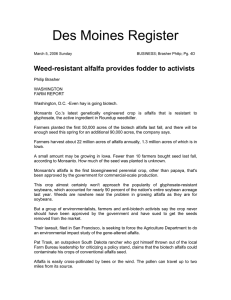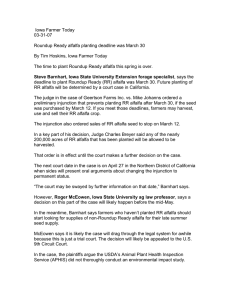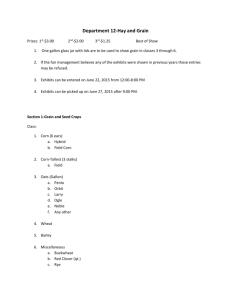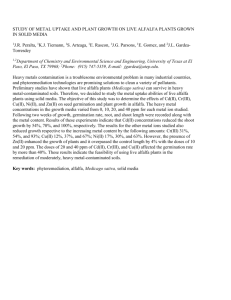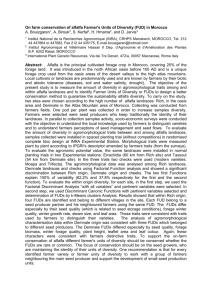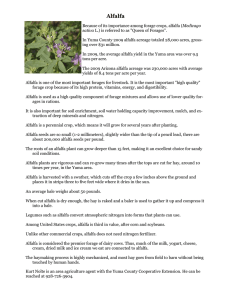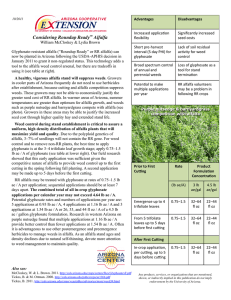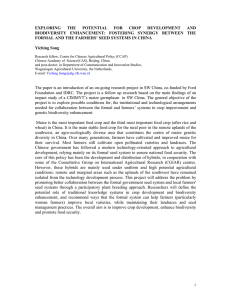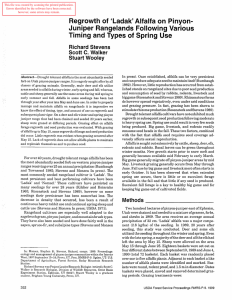Des Moines Register 03/05/06 Brasher: Weed-resistant alfalfa provides fodder to activists
advertisement
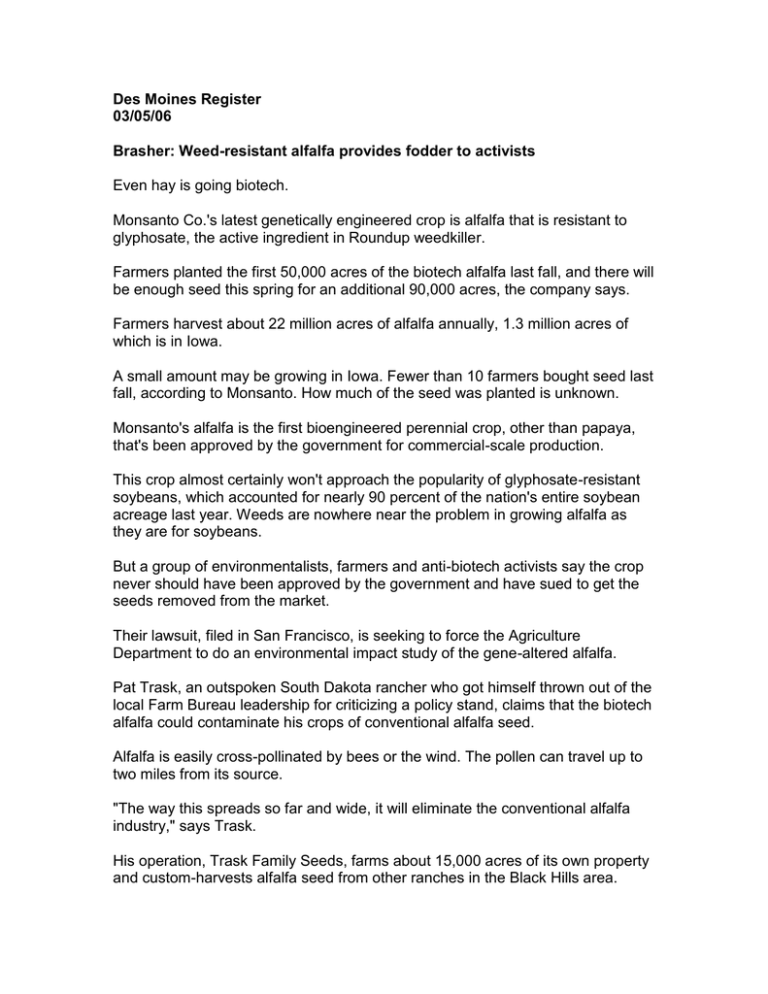
Des Moines Register 03/05/06 Brasher: Weed-resistant alfalfa provides fodder to activists Even hay is going biotech. Monsanto Co.'s latest genetically engineered crop is alfalfa that is resistant to glyphosate, the active ingredient in Roundup weedkiller. Farmers planted the first 50,000 acres of the biotech alfalfa last fall, and there will be enough seed this spring for an additional 90,000 acres, the company says. Farmers harvest about 22 million acres of alfalfa annually, 1.3 million acres of which is in Iowa. A small amount may be growing in Iowa. Fewer than 10 farmers bought seed last fall, according to Monsanto. How much of the seed was planted is unknown. Monsanto's alfalfa is the first bioengineered perennial crop, other than papaya, that's been approved by the government for commercial-scale production. This crop almost certainly won't approach the popularity of glyphosate-resistant soybeans, which accounted for nearly 90 percent of the nation's entire soybean acreage last year. Weeds are nowhere near the problem in growing alfalfa as they are for soybeans. But a group of environmentalists, farmers and anti-biotech activists say the crop never should have been approved by the government and have sued to get the seeds removed from the market. Their lawsuit, filed in San Francisco, is seeking to force the Agriculture Department to do an environmental impact study of the gene-altered alfalfa. Pat Trask, an outspoken South Dakota rancher who got himself thrown out of the local Farm Bureau leadership for criticizing a policy stand, claims that the biotech alfalfa could contaminate his crops of conventional alfalfa seed. Alfalfa is easily cross-pollinated by bees or the wind. The pollen can travel up to two miles from its source. "The way this spreads so far and wide, it will eliminate the conventional alfalfa industry," says Trask. His operation, Trask Family Seeds, farms about 15,000 acres of its own property and custom-harvests alfalfa seed from other ranches in the Black Hills area. Other plaintiffs in the lawsuit include the Sierra Club and the Washington- based Center for Food Safety, an anti-biotech advocacy group, and the National Family Farm Coalition. The complaints laid out in the lawsuit aren't new to USDA. The department considered the concerns raised by the lawsuit, including the cross-pollination issue, before it approved the crop without doing a full environmental study. USDA officials noted that other biotech crops, including corn, don't have to be isolated to prevent cross-pollinating other crops. Organic corn growers know that all too well. And, USDA says, it's up to organic farmers to avoid cross-pollination, not the other way around. And USDA officials say there's unlikely to be significant pollination problems with alfalfa anyway, for this rather obvious reason: Unlike corn, alfalfa is typically harvested before it goes to flower, not after. Unless, of course, you're growing the alfalfa for seed. Then, like Trask, you could have a problem if your customers are expecting pure conventional or organic seed. Whether farmers actually buy the new Monsanto seed will depend on how much of a weed problem they have and whether they're selling the hay to customers who want it free of weed seed, says Charles Brummer, a forage specialist at Iowa State University. The biotech seeds carry a technology fee of $125 to $150 per 50-pound bag, which could push the total price to about $400. Monsanto claims the seed will pay for itself in getting the crop established the first year. Farmers often plant cover crops such as oats with new alfalfa plantings to prevent weeds from taking hold in the field. "It's like any other technology. For some farmers it's going to be great. For other farmers, it just isn't going to fit into their operation," he says. The problem for producers like Trask: They don't want it in their operations, and they don't want it in their neighbor's, either.
